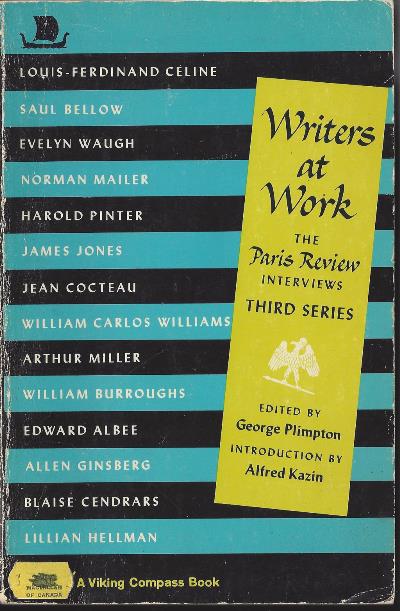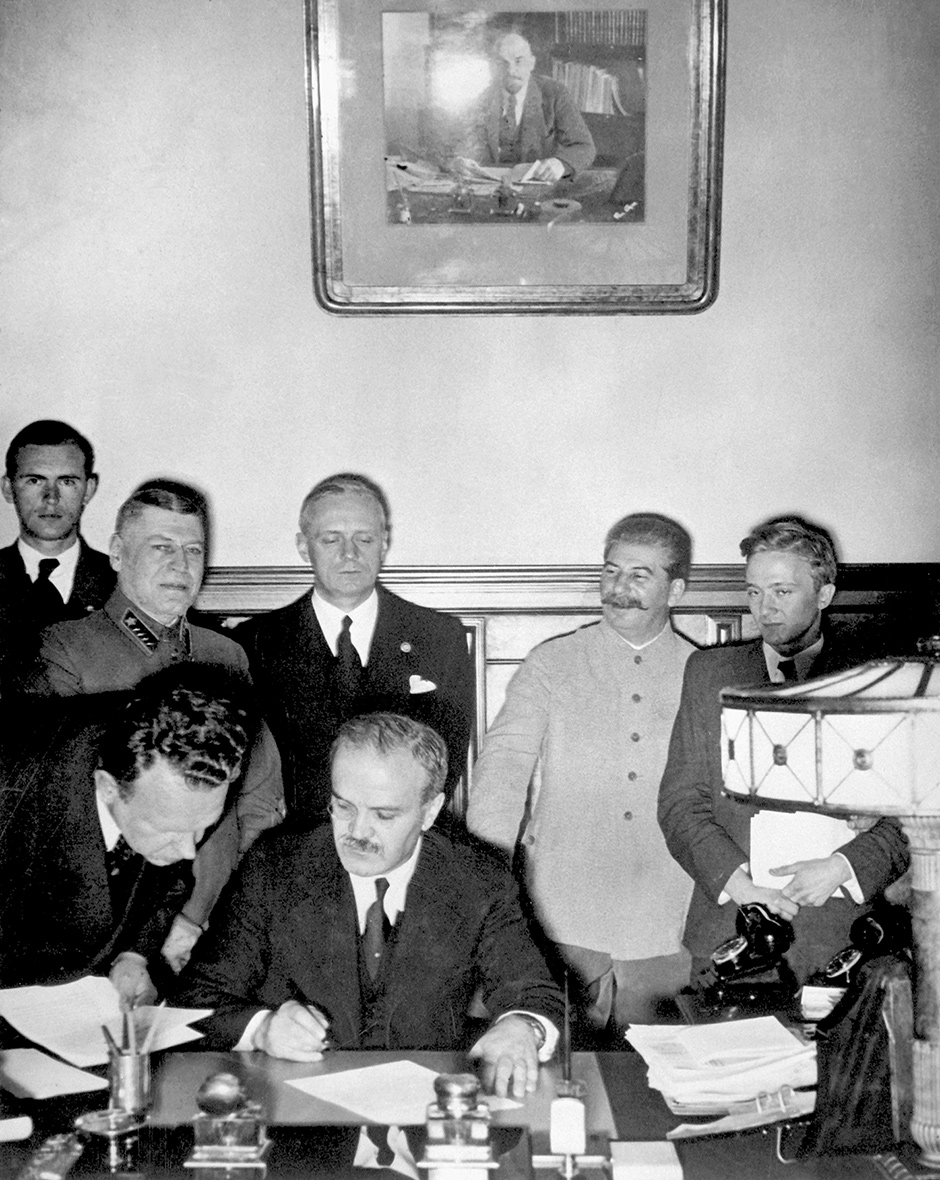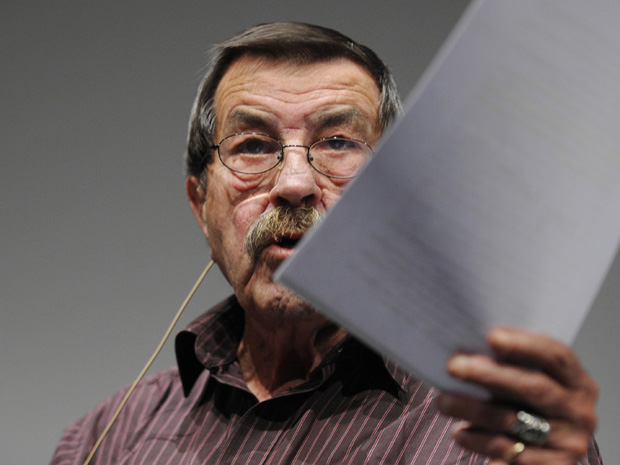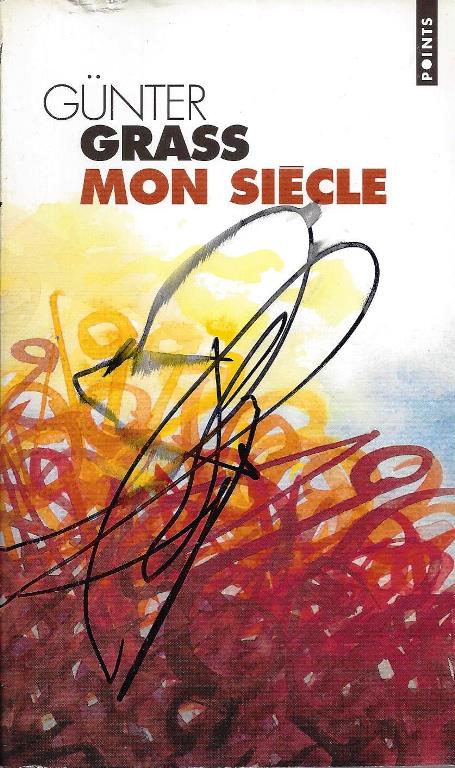Dịch thuật | Dịch ngắn | Đọc sách | Độc giả sáng tác | Giới thiệu | Góc Sài gòn | Góc Hà nội | Góc Thảo Trường
Thư tín | Phỏng vấn | Phỏng vấn dởm | Phỏng vấn ngắn
Giai thoại | Potin | Linh tinh | Thống kê | Viết ngắn | Tiểu thuyết | Lướt Tin Văn Cũ | Kỷ niệm | Thời Sự Hình | Gọi Người Đã Chết
Ghi chú trong ngày | Thơ Mỗi Ngày | Nhật Ký | Chân Dung | Jennifer Video
|
|
Nhật
Ký Tin Văn
Lao
Home, 2014 & 15 Trip[TV last page]  Cu Lùn, Toronto, 11.5.09 GÜNTER GRASS, one of the great German novelists, has died at the age of 87. A man renowned for a willingness to write openly about his country’s 20th-century history, his reputation as a moral authority was dented by the controversies of his later life. In 1959 Mr Grass published his first novel, the one that would go on to define his literary career. Set in his native Danzig, “The Tin Drum” tells the story of 20th-century Germany through the memoirs of its narrator, Oskar Matzerath, a drum-obsessed man-child who has decided never to grow up. The book had a hostile reaction in Germany on its publication, but went on to become hugely successful internationally (and the basis for an Oscar-winning film 20 years later). Other significant works included “Cat and Mouse” and “Dog Years”, which with “The Tin Drum” make up the “Danzig Trilogy”, and “The Flounder”, a sprawling fairy-tale of a novel that charts a much longer span of German history. In 1999 Mr Grass was awarded the Nobel prize for literature, with the committee praising “frolicsome black fables” that “portray the forgotten face of history". Always a polemicist, he expressed doubts about the reunification of Germany in 1990, and in an autobiography published in 2006 he came clean about his membership of the Waffen-SS during the second world war—an admission that many felt should have been made earlier, given Mr Grass’s status as the voice of Germany’s public conscience with respect to its Nazi past. Then in 2012 he was accused of anti-semitism after writing a poem that denounced Israel’s nuclear programme and its aggressive posture towards Iran. A full obituary considering Mr Grass's literary, social and moral impact in greater detail will be available in this week’s Economist. Bài trên tờ Người Kinh Tế, không quên cú thú tội trước bàn thờ của GG, và không quên luôn bài thơ của ông, khi tố cáo Do Thái, về chương trình võ khí nguyên tử của nước này, và thái độ hiếu chiến đối với Iran. Trên TV có nhắc tới vụ này, để coi lại. Günter
Grass’s Poem About Israel Provokes Intense Criticism
"Why
only now, grown old,/And with what ink remains, do I say:/Israel's
atomic power
endangers/an already fragile world peace?" he writes, before answering
his
own question: "Because what must be said/may be too late tomorrow." Tại làm sao
bi giờ, già quá rùi, còn tí mực còn lại, tui lại để cho tay tui dính
mùi "giang
hồ gió tanh mưa máu"? Nghe như giọng
GCC, đếch phải Gunter Grass! Hà, hà! Gunter Grass vừa đi một bài thơ, “Điều phải nói”, tố cáo Israel âm mưu làm cỏ, [wipe out, annihilation] Iran, gây hiểm họa cho hòa bình thế giới. “Tớ quá già rồi, và bằng
những giọt mực chót, cảnh cáo nước Đức của tớ, coi chừng
lại dính vô tội ác [“supplier to a crime”]." (1) Bộ Trưởng ngoại giao Israel, đọc bài thơ, phán, thơ vãi linh hồn [“pathetic”], và cái việc ông ta, Grass, chuyển từ giả tưởng qua khoa học viễn tưởng, coi bộ ngửi không được, poor taste. Günter Grass
pointe tout particulièrement le silence de l'Allemagne, "culpabilisée
par
son passé nazi", qui refuserait de voir le danger constitué par
l'arsenal
nucléaire israélien. Un arsenal "maintenu secret -, et sans contrôle,
puisque aucune vérification n'est permise" et qui "menace la paix
mondiale déjà si fragile", insiste l'écrivain. Il en profite pour
rappeler
que l'Allemagne s'apprête à livrer un sixième sous-marin à Israël.
Berlin et
Tel Aviv ont en effet conclu un contrat en 2005 sur la vente de
sous-marins
Dolphin, qui peuvent être équipées d'armes nucléaires. Enfin, Günter
Grass
réclame la création d'une agence" internationale pour contrôler les
armes
atomiques israéliennes, tout comme l'AIEA le fait pour les activités
nucléaires
iraniennes Grass đặc biệt nhấn mạnh tới sự im lặng của nước Đức, “do tội lỗi bởi quá khứ Nazi”, thành ra vờ, làm ra vẻ không nhìn thấy hiểm họa của võ khí nguyên tử của Israel. Một võ khí nguyên tử “được giữ bí mật, không kiểm cha, kiểm mẹ, vì đếch ai được phép”…
GRASS'S
CENTURY From a
writer like Gunter Grass, one expects a masterpiece even on his
deathbed;
though by all indications My Century (Alfaguara)
will be only the second-to-last of his great books. It's a
collection of short stories, one for each year of the century now
behind us, in
which the great German writer examines the frequently tortured fate of
his
country. From the first soccer teams to World War I, from the economic
crisis of
the twenties to the rise of Nazism, from World War II and the
concentration
camps to the German Miracle, from the post-war period to the fall of
the Berlin
Wall, everything has a place in this book, which manages to seem short
though
it's more than four hundred pages long, perhaps because the succession
of
horrors, the succession of disasters, and the human instinct for
survival
despite everything make it feel that way: the century has exhaled. Bolano: Trong Ngoặc. Note: Bài này ngắn, nhưng cực thú. GCC đã tính đi hết cả bài, nhưng lần khân, nay nhân Grass đi xa, bèn gửi với theo. Từ 1 nhà văn
khổng lồ như Grass, người ta hy vọng 1 cuốn khổng lồ, ngay cả khi ông
đang hấp
hối trên giường chờ chết. The Turkish
Nobel laureate Orhan Pamuk had warm personal memories: “Grass learned a
lot
from Rabelais and Celine and was influential in development of ‘magic
realism’
and Marquez. He taught us to base the story on the inventiveness of the
writer
no matter how cruel, harsh and political the story is,” he said. Pamuk, nhắc
tới Céline, khi tưởng niệm Grass. Tuy nhiên, qua trả lời phỏng vấn trên
tờ Văn
Học, ML, Grass rất bực khi bị coi là 1 Céline của Đức. Nhân đây, bèn
trích dẫn Kazin, trong bài Intro cho tờ The Paris Review, số có bài
phỏng vấn Céline: Louis-Ferdinand
Celine was an extraordinary and terrifying presence in the
twentieth-century
novel. He was never altogether sane after suffering head wounds in the
First
World War, and by the Second, like other wounded and desperate French
writers
who had come to despair of history, he allied himself with the most
evil forces
in Europe in order to protest the cruelty and injustice that had always
been
under his eye when he practiced medicine in the slums of Paris. Celine
was an
amazingly powerful writer who when interviewed did not make very much
of being
a writer. He thought it enough for a man to tell a story; he must tell
it in order
to be released from life's order; only then can he die in peace. It is
doubtful
that Celine died in peace. But he was so strong and original a
writer-surely he
is the only genius of the French novel since Proust-that when he tells
his
"story" the impact of his life experience becomes one of those blows
which we suffer with gratitude. He describes his childhood in Paris-the
mother,
a lace maker, made the family live on noodles because more pungent
foods left
odors in the lace-he touches on the Fir t World War, on his doctoring.
It is
extraordinary how much, ill these few pages, he says about the human
condition.
Politically, Celine was a maniac. Yet his gift for describing things as
they
are was great, and the compassion he shows in his books is striking. ALFRED KAZIN  Note: Số báo này, mua xon ở Lào. Có bài Intro của Kazin. Tay này tuyệt lắm. Di dân Mẽo gốc Do Thái. Trong tập essay GCC mới mua, dưới đây, có 1 bài rất tuyệt về tay này.  GCC đang
tính tìm hiểu Mít di dân có thể nào thành công không, về cái chuyện
viết lách ở
Mẽo, so với Mẽo gốc Do Thái.
Trên tờ The New Yorker, trong bài viết về cú Mỹ Lai, tác giả có nhắc tới Nguyễn Quí Đức, đấng này về luôn Việt Nam rồi, có giải thích, ở Mẽo không làm sao hoàn tất là 1 con người được, về Việt Nam tìm cái phần thiếu, nhớ đại khái [sẽ check lại sau]. Rồi Thận Nhiên, lưu vong kép, rồi Đinh Linh, rồi Sến ở Đức…
Thơ
Mỗi Ngày
Four Poems
by Charles Simic THE ESCAPEE The name of
a girl I once loved OH, MEMORY You've been
paying visits THE FEAST Dine in
style tonight SCRIBBLED IN
THE DARK Sat up Startled * Hotel of Bad
Dreams. The night
clerk * Body and
soul Playing
their farces * Oh, laggard
snowflake * Softly now,
the fleas are awake. The Paris
Review 209, Summer 2014 [Mới lục ra,
không biết đã dịch chưa!] Rồi! (1) Yes,
defending poetry, high
style, etc., Bảo vệ thơ,
và vân vân. Đúng
rồi, bảo vệ thơ, văn
phong cao, v...v…
Kính
gửi đến ông vài lời, sau
khi làm độc giả thường nhật của tanvien.net hơn một năm nay. Bởi quá
thích, mục
Thơ mỗi ngày, nên hôm nay mới đánh bạo viết mấy dòng gửi ông, để cám ơn
những
gì mà một mình ông làm, kiến tạo và duy trì hào hứng trang web này trong suốt thời gian qua. Kính chúc ông viết hăng
mỗi ngày, và qua việc viết, sẽ đem đến cho đời ông, và độc giả những chất liệu và phương thức sống, đọc
& viết tươi mới mãi. Phúc
đáp: Đa tạ
Mục “Thơ Mỗi Ngày”, do trục trặc
kỹ thuật, một số bài bị ‘delete’. Trong có mấy bài về Pessoa, và mail
của bạn, trên.
Sorry abt that. NQT [GCC post lại mail trên, hy vọng vị độc giả vưỡn đọc TV, và reply, vì GCC không còn địa chỉ mail của vị này] 30.4.2015
EXAMPLE A gale With this example Wislawa Symborska: Here Thí dụ Một trận gió lạnh Với thí dụ này Ui chao, VC quả đã làm
thịt ông bố, nhưng chừa ông con Như có Bác Hồ trong ngày vui đại thắng! Bạn có thể áp dụng bài thơ
trên, cho rất nhiều trường hợp, Nào họ Trịnh hầu đờn Hồ
Tôn Hiến Virtue, after all, is far
from being synonymous with survival;  Bếp Lửa
Ottawa Trong bài viết
về Borges, Hổ trong gương, “Tigers in the mirror”, trên The New Yorker,
sau in
trong “Steiner at The New Yorker”, Steiner có nhắc tới 1 truyện ngắn
của
Borges, mới được dịch qua tiếng Anh, The Intruder. Truyện này hoành
dương,
illustrate, tư tưởng hiện tại của Borges. Tò mò, Gấu
kiếm trong “thư khố” của Gấu, về ông, không có. Lên net, có, nhưng chỉ
cho đọc,
không làm sao chôm: “The Intruder”, câu chuyện hai anh em chia nhau,
một phụ nữ
trẻ. Một trong họ, giết cô gái để cho tình anh em lại được trọn vẹn. Vì
chỉ có
cách đó mà hai em mới cùng san sẻ một cam kết mới: “bổn phận quên
nàng”. Borges coi
nó như là 1 vi-nhét - bức họa nhỏ, dùng để trang trí - cho những những
câu chuyện
đầu tay của Kipling. “Kẻ lén vô nhà, The Intruder”, quả là 1 chuyện
nhỏ, nhẹ,
nhưng không 1 tì vết và cảm động một cách lạ thường. Lần đầu đọc, trên
net, Gấu
mơ hồ nghĩ đến BHD, tượng trưng cho thứ văn học của Gấu, hay rộng ra,
của cả Miền
Nam đúng hơn, được cả hai thằng, anh Bắc Kít và em Nam Kít, cùng mê, và
1 thằng
đã "làm thịt em" để cả hai cùng có bổn phận, quên nàng: Như thể, sau
khi Gấu lang thang xứ người, lưu vong nơi Xứ Lạnh, một bữa trở về Xề
Gòn, và thấy
Những Ngày Ở Sài Gòn, nằm trên bàn! "The
Intruder," a very short story recently translated into English,
illustrates Borges's present ideal. Two brothers share a young woman.
One of
them kills her so that their fraternity may again be whole. They now
share a
new bond: "the obligation to forget her." Borges
himself compares this vignette to Kipling's first tales. "The
Intruder" is a slight thing, but flawless and strangely moving. It is
as
if Borges, after his rare voyage through languages, cultures,
mythologies, had
come home and found the Aleph in the next patio. Steiner cho
rằng cái sự nổi tiếng của Borges làm khổ dúm độc giả ít ỏi, như là 1 sự
mất mát riêng tư. Vào cái tuổi
già chín rục, Borges tếu táo, tôi bắt đầu nghi, rằng thì là bi giờ cả
thế giới
biết tới mình! TTT cũng thế. May sau đó,
nhờ Nguyễn Đình Vượng, đổ mớ sách ra hè đường Xề Gòn, nhờ thế cuốn sách
tái
sinh, từ tro than, từ bụi đường! Gấu là thằng
may nhất, nếu không có cú bán xon của NDT, Gấu không làm sao được đọc
Bếp Lửa! Viết  A brief
survey of the short story: Italo Calvino "My
author is Kafka", Calvino once told an interviewer when asked about his
influences, and his presence is discernible throughout Calvino's work,
from The
Argentine Ant to the 1984 story Implosion. Here Calvino links two of
literature's most introspective characters, the doomed prince Hamlet
(the story
begins: "To explode or to implode – said Qfwfq – that is the
question") and the mole-like creature from Kafka's death-haunted story
The
Burrow, in a beautiful but deeply melancholic rumination on black holes
and the
death of the universe, and an apprehension that obliteration lies at
the heart
of each individual consciousness:
"Don't distract yourselves fantasizing
over the reckless behaviour of hypothetical quasi-stellar objects at
the
uncertain boundaries of the universe: it is here that you must turn
your
attention, to the centre of our galaxy, where all our calculations and
instruments indicate the presence of a body of enormous mass that
nevertheless
remains invisible. Webs of radiation and gas, caught there perhaps
since the
time of the last implosions, show that there in the middle lies one of
these
so-called holes, spent as an old volcano. All that surrounds it, the
wheel of
planetary systems and constellations and the branches of the Milky Way,
everything in our galaxy rests on the hub of this implosion sunk away
into
itself." Không 1 tên Mít nào viết nổi 1 câu thật là bình thường như vậy. Bài viết này, nằm trong loạt bài nghiên cứu về truyện ngắn của tờ Guardian. Bài này cũng thật là tuyệt
Monsters
Together  Soviet Foreign Minister Vyacheslav Molotov signing the Nazi–Soviet Pact, with German Foreign Minister Joachim von Ribbentrop directly behind him, next to Stalin, August 23, 1939 In the vast literature about Stalin and Hitler
during World War II, little is said about their being allies for
twenty-two months. That is more than an odd chapter in the history of
that war, and its meaning deserves more attention than it has received. Ít người còn nhớ Nazi và Liên Xô đã từng là bạn quí! TTT 2006-2015 Nỗi Buồn Hoa
Phượng Nhà thơ TTT
có lần ngồi Quán Chùa, nhân lèm bèm về nhạc sến, đúng hơn, nhạc có lời,
ông
phán, GCC nhớ đại khái, ở trong chúng, có cái gọi là nhịp của thời gian. Hết
năm học, một em, còn nhớ, người Nam, đưa cho GCC 1 cuốn sổ nho nhỏ, GGC
nhớ là,
đẹp lắm, và nói, anh viết vài dòng lưu bút cho em! Cũng chẳng
nhớ 1 tí gì, về nội dung bức thư tình.
|
Cảnh đẹp VN Giới Thiệu Sách, CD Art2all Việt Nam Xưa Talawas Guardian Intel Life Huế Mậu Thân Cali Tháng Tám 2011 30. 4. 2013 Thơ JHV TMT Trang đặc biệt Tưởng nhớ Thảo Trường Tưởng nhớ Nguyễn Tôn Nhan TTT 2011 TTT 2012 7 năm TTT mất Xử VC Hình ảnh chiến tranh Việt Nam của tờ Life Vĩnh Biệt BHD 6 năm BHD ra đi Blog TV  Lô cốt trên đê làng Thanh Trì, Sơn Tây Bếp Lửa
trong văn chương
Báo Văn [Phê Bình] cũ, có bài của GCC Mù Sương Hồi Ký Viết Dưới Hầm Nghĩ về phê bình Mây Bay Đi Nguyễn Du giữa chúng ta "Tạp Ghi" by Tuấn Anh Chữ và Việc TSVC Nhã Tập Truyện Kiều ABC Xuân Vấn Đề Kỷ Dậu Truyện ngắn Võ Phiến Những ngày ở Sài Gòn nhà xb Hoàng Đông Phương Mộ Tuyết [Hồi bắt đầu đi làm] Happy Birthday GCC, 2012 SN 16.8.2013 Cali 3.08 Cali Tháng Tám 2011 Vietnam's Solzhenitsyn NQT vs DPQ @ NMG's Lolita vs BHD |


